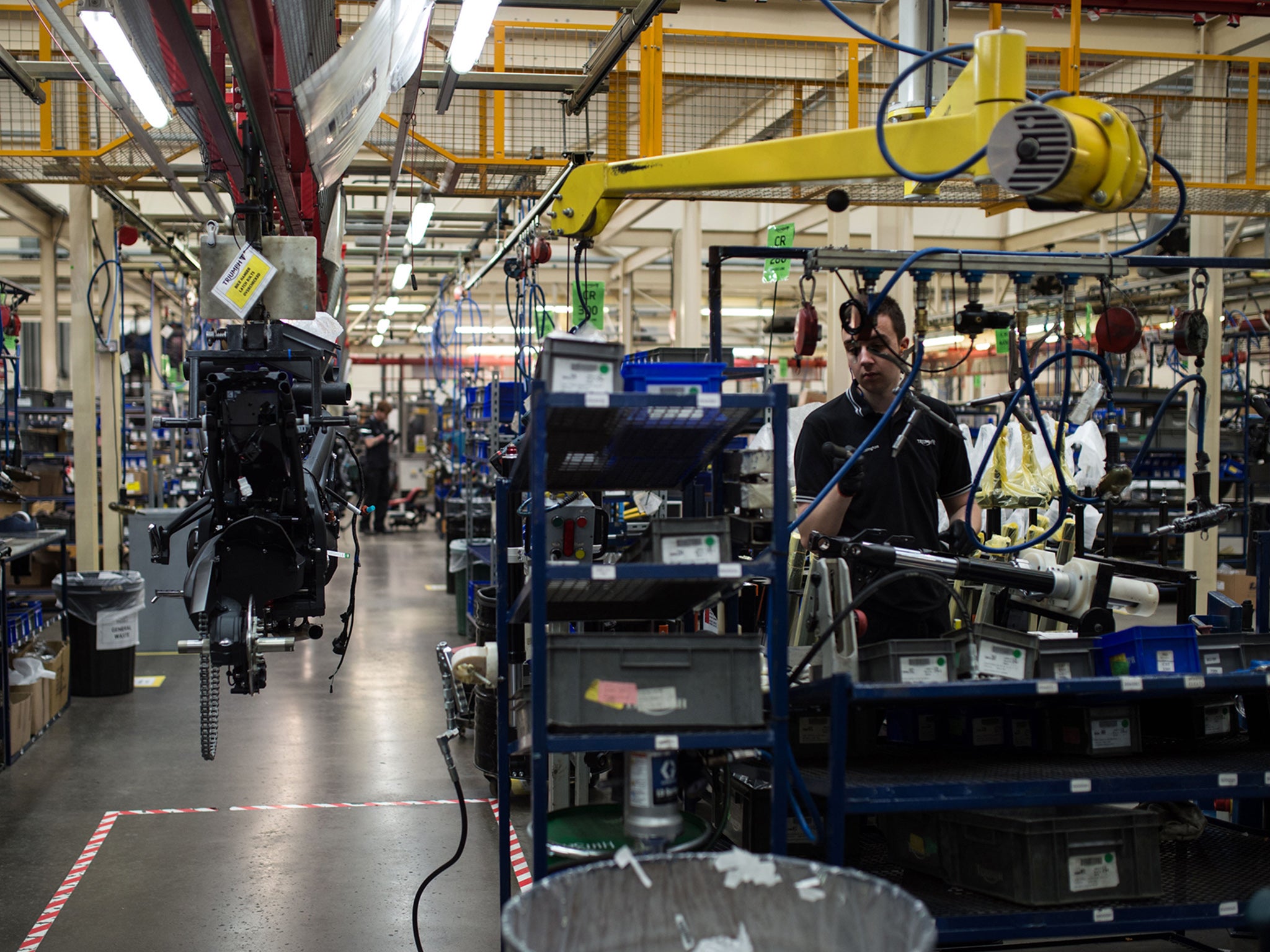UK manufacturing 'lacklustre' in November as Brexit uncertainty continues to bite
The Purchasing Managers’ Index in the month showed a weakening of export orders and optimism among firms slumped to a 27-month low

The performance of UK manufacturing was “lacklustre” in November, as Brexit continued to bite, according to the latest survey snapshot of the sector.
The Purchasing Managers’ Index in the month showed a weakening of export orders and optimism among firms slumped to a 27-month low, with companies citing exchange rate concerns, a slowing economy and uncertainty over leaving the European Union.
The overall index rose to 53.1, up from 51.1 in October, but the compilers of the survey said activity was still ominously weak.
“The November PMI provided a lacklustre picture of the UK manufacturing sector, as ongoing global trade tensions and Brexit uncertainty weighed on current business conditions and dampened the outlook for the year ahead,” said Rob Dobson of IHS Markit.
“The sector offered a crumb of positive news this month with a small uplift in overall activity and greater purchasing volumes suggesting that the sector is strengthening at last. However the challenges lurking round the corner reveal that this marginal growth may not be enough to keep the sector on an even keel in the last quarter,” said Duncan Brock of the Chartered Institute of Procurement & Supply.
Lacklustre activity
Manufacturing accounts for around 10 per cent of UK GDP.
The Office for National Statistics estimates that the sector grew by 0.6 per cent in the three months to September, recovering from a contraction earlier in the year.
But the latest PMI, based on historic patterns, suggests that manufacturing will make zero contribution to GDP growth in the final quarter of 2018.
“Manufacturing has largely had a much more challenging 2018 – after a particularly robust second half of 2017 – and it looks to be ending the year largely on the back foot,” said Howard Archer of the EY Item Club.
Many UK manufacturing firms are deeply worried about the possibility of the UK crashing out of the EU single market and customs union next March, a scenario that would wreak havoc with their just-in-time Continental supply chains and exports.
Subscribe to Independent Premium to bookmark this article
Want to bookmark your favourite articles and stories to read or reference later? Start your Independent Premium subscription today.

Join our commenting forum
Join thought-provoking conversations, follow other Independent readers and see their replies